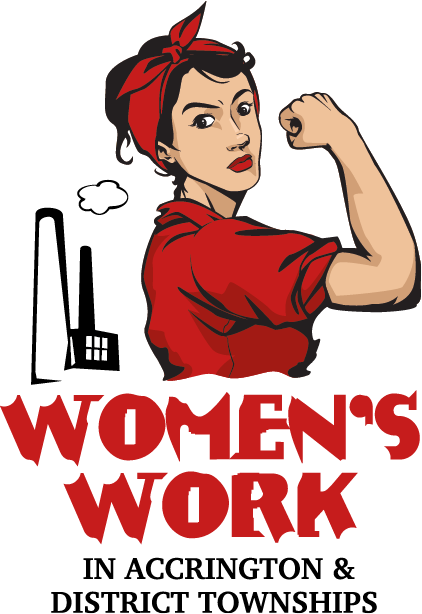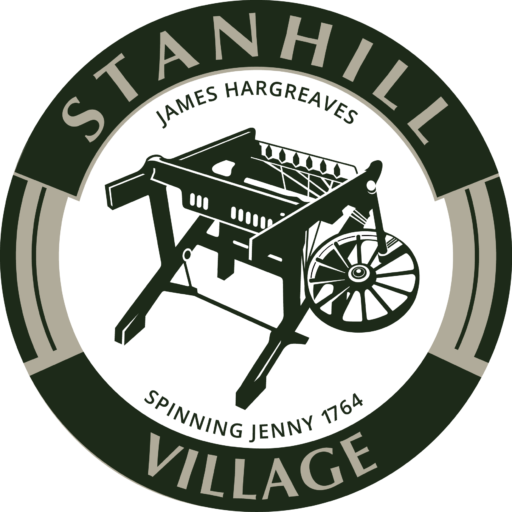GROWING UP
I lived in Blackburn. I was the only one. My mother and my father worked in t’mill. My mother were a weaver and then a winder and my dad were a cloth worker. I think I were brought up OK you know, no problems.
I hated school. I weren’t right good at anything and I weren’t one for asking questions if I didn’t understand them. I’d just sit there quietly and not say anything. And if any questions came up and I knew them, I just kept myself quiet, I wouldn’t answer them and then when somebody else answered them I thought I did know that, you know. I were a bit backward at coming forward really at school.
WORKING LIFE
We were expected to go to work and the careers people come round to see what you wanted to do. They’d try to get you a job that suited you and my mother didn’t want me to go in the mill because there were two people- my mum and my dad were working in the mill- and they said it’s no good having all your eggs in one basket sort of thing. So I got a job at Mullards in Blackburn, doing assembly for televisions. I was 15 when I left school.
I only remember giving it (her pay) my mother instead of boarding like, you know a lot of people boarded then. I just give it to my mother and my mother used to give me spending money. But I can’t remember what I got, no idea. I think, when I come to think of it, I got more or less near as much as my mother got in the mill but at that place, if you did a certain number, you were expected to carry on doing that number. So if you like got so many over like 100, over and then you put that to the next day, then obviously you were 100 more. And they came and said what you can do this everyday, well I couldn’t because I wouldn’t have a spare 100 you see, so I just carried on, on the same wage level. But they did hassle you to keep working harder, you know.
Well I must have been there about 6 or 7 months and I quite enjoyed it, apart from keep being hassled to make more money. I got on with the people round and about, I made some good friends, I still see them and speak to them now. We go out for lunch together and make a meal at night in a pub and we have a good natter you know. There were two friends that I really got two friends that really got me you know, but other than that they were a bit standoffish, a lot of them.
I met my husband in 1959. His mother worked at Northrop in Blackburn. And obviously it were more money than what I were getting even at 16, so I went there because I weren’t happy at Mullards, and I started in the town room making cores. And we made the cores to fit the looms, and they did Northrop looms for weaving and winding and things like that.
You got like a mould, a steel mould and you got some sand, and the sand had like oil in and you threw it in and you patted it down like making a sand pie, and then just put it out on a tray, and put your tray on the conveyor belt and it moved up and it went into the oven to harden up. Just ladies did it. (This process).
THE TRADE UNION
I were working away one day and this gentleman come up and said “All out! All out!” And I said “Oh well what are we going out for?” Anyway, it seems that one of the moulders has done something that he shouldn’t have done, and we all went out. We weren’t suited about it but if you pay your money and you’re in the union you’ve got to do, you had to do what they said. It’s not as strong these days is it, the trade union. I don’t think there is a trade union today, is there?
I had another one (interaction with the union) where you’d to reckon your wages up in fractions. And as I said, I weren’t a scholar at school. If I couldn’t do it, I just didn’t want to do it and I got my wage slip one day- oh, my mother-in-law learnt me one dinnertime how to reckon my wages up in fractions- and I learnt it because I were getting money and I needed to know. And then, shortly after I got my wage slip, and it were wrong, so I went into the office and I told them it were wrong and she didn’t agree with me. So she brought the trade union in and he said well, reckon it up again, because she was saying it was right, she weren’t in the wrong. Anyway, she did reckon it up again, and it was right what I said! and union just went then, and she were defeated, she were in the wrong.
JUGGLING WORK, MARRIAGE AND CHILDREN
I don’t think he (her husband) liked me working. I think he wanted me to stop at home really, but I was never brought up to stop at home, I was brought up to work. And to bring some money into the house because my mother had always worked, so obviously you think you still have to work, you know. He didn’t like going into the house on his own, many a time he went home at lunchtime and I weren’t there, and he turned around and went in a cafe for his dinner. But like I said you know, I was always used to having to work so I did it.
Well he (her husband) give me so much towards the household, the bills and food and when we were getting ready for getting married, I’d seen what my mother had in her shopping list and I reckoned it up and I said well we need so much for that, then there’s electric and gas and written everything down on a piece of paper, and to give me that. But that didn’t work out because what you spend on writing it down, you spend more when you go shopping. So we had a few arguments on that but I got through it. I got my own way. I just put my money into the household.
I come from Blackburn originally so I used to go (back) to my mother’s and my dad on a Saturday, and I needed to work and somebody had heard of a lady that did childminding. So I went to see her and she said yes she wouldn’t mind it, so that meant I’d to come from Stanholme where I lived, over on the bus, got off the bus and then I had to walk like a mile and a half to the childminders to give them the child. And then at night I’d to go back to the childminders and then walk another mile and a half and then get on the bus back to where I lived. So I’d done a day’s work before I started really.
And then when I come to have my second daughter, my second child, it wasn’t worth giving the childminding money, because I weren’t on a right big wage, and by the time you’d spent it on the household, the groceries and that, it were, you’d nothing left, so I stopped at home then. Then, three and a half years later I had another child, and after that I had a friend-we lived in a village- and we had this friend, and we got a job at packing at a toy wholesalers and she worked in the morning and I went in the afternoon, looking after each other’s children.
I must have been there about 3 or 4 years before, well her and her husband split up, so she had to go working full-time. So that’s when I finished. Because I couldn’t work with anybody else on that scheme (job share) so I finished as well.
I just didn’t get a job then. I went all over looking for jobs but none seemed to come available and then I got divorced, and then I met this gentleman that had his own business and wanted to go away on holiday – Oh, I did get a job at Rists Wires and I wanted to go away a lot and they didn’t like it, you know, so he said well if we’re going to go away, you better come and work for me. So, I went working for him doing a bit of office work and then if the lads wanted any stuff, go to the wholesalers, get the stuff and then take it to where they were working. And then he died so I carried on working there a little bit, and then I went to another firm, and I went to working there at night, on the housewives’ shift. And then that got a bit too much working during the day and then working at night while 10, so I got a full-time job at a mill doing leasing. We’d to pull a thread through this material for the weavers to weave it and I were there until that closed down. And then I got myself a job in the toy wholesalers, like shop work, until I retired.
PAYING THE NATIONAL INSURANCE STAMP
I think my mother said just keep your stamp up and it seemed to like, stick in my mind, so I always paid the full stamp, although you got a smaller wage, but my husband like helped me, because he were a motor mechanic and he had his own business so I were alright there. I used to put his stamps on because he was self-employed and just paid full stamp. I seem to recollect my mum saying oh you’ve got to pay your stamp, you’ve got to pay your stamp sort of thing so…
WOMEN’S LIB
I were driving somewhere and I had a flat tyre so I weren’t changing it myself so I went to a garage and-excuse me can you change my tyre please? And he went out, changed it and I gave him whatever £2.50 and away I went, and they changed my tyre. I weren’t getting down changing no tyre at my age!
THE CAREER SHE WOULD HAVE LIKED
I think I’d have gone in the army or one of the forces. With being on my own, just a single child, I think that would have more or less brought me out and I think I’d have joined up. Mind you I don’t know if I’d have lasted, but I think I would have joined up and gone in the forces and had a bit of a career, and more of a pension. Although I haven’t got a bad pension compared to other people, I haven’t had to put any money in my pension pot because my pension were there.
I think I’d have joined t’army. Because my husband’s auntie was in the army and she used to say the things they got up to, and how good it were and I think I might have chose that.
Well, one of my uncle’s my mother’s brothers, he’d been in Burma during the war and there was always like a photograph of him with his uniform on, but it never occurred to me (when she was younger). I think as I got older and thought about it, I thought if I had had the chance I might have jumped for the army but I didn’t think about it when I were 15, I just wanted to go to work, like any job would do you know, sort of thing you know but that’s about it.
My mum, she were right with my pension you know. I didn’t lose my pension and I think she give me some good advice really.




